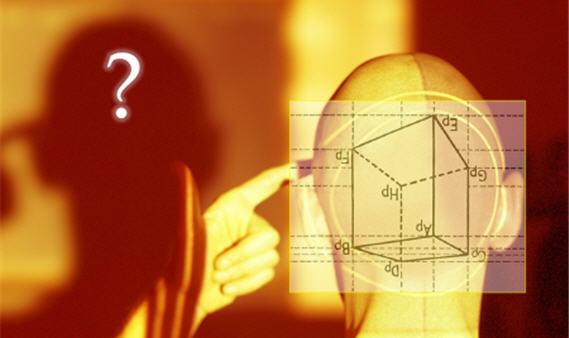Is Morality Necessary?
Excluding all moral concepts and language from my thinking, feeling and actions has proved so workable and attractive, I am convinced that anyone who gives it a fair shot would likely find it to his liking.
Joel Marks has devoted his life to studying ethics. But he’s had an epiphany: We’re better off without morality at all.
[T]he personal experiment of excluding all moral concepts and language from my thinking, feeling and actions has proved so workable and attractive, I am convinced that anyone who gives it a fair shot would likely find it to his liking.
One interesting discovery has been that there are fewer practical differences between moralism and amoralism than might have been expected. It seems to me that what could broadly be called desire has been the moving force of humanity, no matter how we might have window-dressed it with moral talk. By desire I do not mean sexual craving, or even only selfish wanting. I use the term generally to refer to whatever motivates us, which ranges from selfishness to altruism and everything in between and at right angles. Mother Theresa was acting as much from desire as was the Marquis de Sade. But the sort of desire that now concerns me most is what we would want if we were absolutely convinced that there is no such thing as moral right and wrong. I think the most likely answer is: pretty much the same as what we want now.
For instance, I used to think that animal agriculture was wrong. Now I will call a spade a spade and declare simply that I very much dislike it and want it to stop. Has this lessened my commitment to ending it? I do not find that to be the case at all. Does this lessen my ability to bring others around to sharing my desires, and hence diminish the prospects of ending animal agriculture? On the contrary, I find myself in a far better position than before to change minds – and, what is more important, hearts. For to argue that people who use animals for food and other purposes are doing something terribly wrong is hardly the way to win them over. That is more likely to elicit their defensive resistance.
Instead I now focus on conveying information: about the state of affairs on factory farms and elsewhere, the environmental devastation that results and, especially, the sentient, intelligent, gentle and noble natures of the animals who are being brutalized and slaughtered. It is also important to spread knowledge of alternatives, like how to adopt a healthy and appetizing vegan diet. If such efforts will not cause people to alter their eating and buying habits, support the passage of various laws and so forth, I don’t know what will.
So nothing has changed, and everything has changed. For while my desires are the same, my manner of trying to implement them has altered radically. I now acknowledge that I cannot count on either God or morality to back up my personal preferences or clinch the case in any argument. I am simply no longer in the business of trying to derive an ought from an is. I must accept that other people sometimes have opposed preferences, even when we are agreed on all the relevant facts and are reasoning correctly.
My outlook has therefore become more practical: I desire to influence the world in such a way that my desires have a greater likelihood of being realized. This implies being an active citizen. But there is still plenty of room for the sorts of activities and engagements that characterize the life of a philosophical ethicist. For one thing, I retain my strong preference for honest dialectical dealings in a context of mutual respect. It’s just that I am no longer giving premises in moral arguments; rather, I am offering considerations to help us figure out what to do. I am not attempting to justify anything; I am trying to motivate informed and reflective choices.
In the process my own desires are likely to undergo further change as well, in the direction of greater compassion and respect, I would anticipate – and not only for the victims of the attitudes, behaviors and policies I don’t like, but also for their perpetrators. But this won’t be because a god, a supernatural law or even my conscience told me I must, I ought, I have an obligation. Instead I will be moved by my head and my heart. Morality has nothing to do with it.
I’m not sure I agree but there’s something to this. The problem with making arguments from the standpoint of religious doctrine, for example, is that they’re only persuasive to those who share that framework. And starting from the position of moral superiority virtually assures that one’s audience will be turned off.
Presumably, we’d still arrive at much the same laws as we now live by if we made them on the basis of preference rather than ethics. Indeed, “situational ethics” is really no different than preference.






Morality often comes from within us. Alternate descriptions of those innate values come from religion and science, but they agree. We are moral creatures, and/or we have fairness instincts.
Apparently the guy sees personal utility in just viewing that internal compass as “preference,” but that view hides something pretty critical. Many of these things are built-in, and shared.
@john personna: I agree that many of us share some ideas of fairness, although I’m not sure they’re the same across cultures. Still, I wonder if it’s not more useful to debate them rationality rather than in terms of “fairness” or “justice” or “morality.”
It seems to me this is just a way for him to advocate for inconsistent positions without having to bother to justify the incoherence. If you argue X is wrong on basis and Y is wrong on the opposite basis, people tend to ignore you. But if X and Y are just aesthetic preferences, there’s no need to come up a set of principles that explains both positions.
@john personna: Morality is the lubricant that allows society to work. We are social creatures and as such need “morals” in the same way a lion pride needs its social structure. These morals are not absolute however and can change over time as society changes.
I think that what the author is ultimately getting at is this: having reasons for why one prefers what one prefers is ultimately more useful for argumentation and persuasion than appeals to authority or to alleged universal truths.
I like his premise; he’s going to appeal to emotionalism and enforce the will of the majority with the barrel of a gun. That’s progress. Of course, in the battle of wills, he who acts without emotion, without concern and without acknowledging the humanity of his victim, wins absent the desire for a moral society traditionally encompassed in religious teachings and defended on by those inspired by moral arguments.
There is a reason humans developed moral teachings and enveloped them in religion. Absent the over encompassing status of religion, we are left to the whims of whomever can seize power.
Now, as an exercise someone explain without using morality, especially Christian morality, why we should support the permanent welfare class? In Britain, they’ve put forth the argument that if not supported in the manner they desire they will riot. Of course, the cheaper and far more permanent solution would be to shoot those rioters rather than paying their extortion. But we routinely kill babies before they have separated from their mother for being merely inconvenient, how do we somehow incur an obligation to keep them alive once the umbilical cord is severed? Assuming we wish progress past the selective culling as in abortion, why not simply leave those who make it to live birth to their own devices to survive in the world? Again, please do not use any moral arguments to impose an obligation upon others.
@JKB:
And you get that interpretation from where?
Also: good thing that there is no coercion associated with Christian morality, right?
Speaking as a lifelong Christian, I have to admit, it is problematic to state that Christianity is coercion-free (eternal damnation is pretty powerful motivator and makes the gun barrel look a bit wimpy) or that it solves the problem of “the whims of whomever can seize power.”
@Steven L. Taylor: And you get that interpretation from where?
From the very basic reality that once you eliminate the idea of universal rights and wrongs, you’re left with nothing but Person X enforcing his view of things on Person Y.
Or to put it another way, exactly how long do you think slavery would have continued in a United States of America where morality didn’t exist?
Mike
“Presumably, we’d still arrive at much the same laws as we now live by if we made them on the basis of preference rather than ethics.”
You might want to check your e-mail. I think Germany circa 1933-1945 and the Union of Soviet Socialist Republics circa 1922-1991 might be trying to get in touch with you.
Mike
@MBunge: Both Nazi Germany and the Soviet Union are cases where ethics–in the form of an overarching, unquestionable ideology–were at the center of governance. Those who disagreed with the ethical values of the rulers were summarily shot or sent off to prison camps.
@MBunge:
You are assuming that morality-qua-morality has inherent power. It does not.
There is nothing especially different in the enforcement of moral claims over claims made on, say, logic.
@James Joyner: Uh…where do you think “ethics” come from if not from preferences? And without morality, how do you argue against those who would share similar preferences?
Mike
@Steven L. Taylor: “You are assuming that morality-qua-morality has inherent power. It does not.”
Yes, it does. Morality assumes the existence of universal rights and wrongs. That is where its power comes from, because universal rights and wrongs apply to other people as well as myself.
Mike
@MBunge:
And yet, the main way by which specific views of those assumptions are accepted by a given population is through imposition by elites who used coercion to force acceptance. And it was often the preferences of the elites in question that led to said imposition.
This is what I mean.
Examples: most of Europeans history. See also: Rome. Or, for that matter, ask the question: “why is Latin America predominantly Catholic?”
@Steven L. Taylor:
Also: much as I disagree with them, the ideologies that James mentioned also assume universal rights and wrongs.
Superficial drivel from a man I assume is trying to sell a book.
Sometimes I want to tell people I see that they are fat, ugly and badly-dressed. I don’t because it would be immoral. I don’t fear retaliation, I’m a big guy and I would be sure only to take shots at people who can’t hurt me.
I’m also very impatient and there are times I’d like to say, “Jesus, old lady, do you not know how to operate an ATM? Get the hell out of my way.”
That would be my desire, because I can be kind of an ass–le. But I restrain my desire because I believe in a moral code and try to follow it.
Farming: that’s his example. Ivory tower much?
@Steven L. Taylor: And yet, the main way by which specific views of those assumptions are accepted by a given population is through imposition by elites who used coercion to force acceptance.
It doesn’t matter how those assumptions are imposed. What matters is that they are UNIVERSAL. That means they apply to me and you, friend and enemy, family and stranger. Without that UNIVERSAL quality, what are we left with? A room with 50 people where the 35 men decides it’s okay to rap the 15 women.
Mike
Morality does not assume universal rights and wrongs — individual people who follow moral systems may, but they’re wrong. Morality, our understanding of it, what it is seen to be and what it is seen not to be, evolves. It’s a sort of consensus that changes over time, in reaction to societal changes, technological changes, etc… It’s a living document you might say, not something chiseled in stone.
People are often threatened by the notion of evolving morality because they want something hard and fast and chiseled in stones. Most people dislike nuance and they dislike shadings and desperately want something they can see as permanent in this tick-tock-dead life we lead.
But the needs of the average person for something solid don’t alter the fact that morality evolves. They may think they want a solid state, but what they practice and what they live is the shifting consensus model of morality.
@Steven L. Taylor: Also: much as I disagree with them, the ideologies that James mentioned also assume universal rights and wrongs.
No, they didn’t. They assumed there were things that were right for some and wrong for others. They were ideologies. Not moral systems.
When people talk about the dumbing down of America, they usually mean stuff like Jerry Springer or The Jersey Shore. The real dumbing down is in discussions like this where supposedly intelligent people look at the millenia of hard work forging the moral codes that have been instrumental in improving human existence and say “Screw it! Let’s just all be logical barbarians!”
Mike
@michael reynolds: Morality does not assume universal rights and wrongs
Just to be clear. I don’t mean universal as “unchanging” or “unalterable”. I mean universal as “applies to everyone”.
Mike
@MBunge:
I think, perhaps, you are less familiar with Marx (or even Hitler’s Mein Kampf) than you think,
They make moral claims within their own logics. Ideologies frequently make moral claims–indeed, it is rather inherent in the enterprise.
The Blank Slate had a good roundup of then-current research on innate morals. For me the biggest “lock” on the idea is that monkeys and other creatures are observed to have fairness rules also, and get angry when they are broken. There have been a stream of these studies recently.
BTW, The Blank Slate also lists a bunch of cultural items that are very near universal, in the sense of spanning global cultures. The commonality is often invisible to us.
@MBunge:
Fair enough, and I should have noted the usage.
Well, true there is the threat of eternal damnation but oddly that doesn’t mean you don’t have free choice here on earth. And yes, over history, some have used Christianity as the excuse for their terrorizing. That is the problem with religious practice, but no necessarily religious morality.
But let’s go back to the premise of using intelligent secular argument to convince others. His example was to be come a Vegan but let’s up the stakes, does anyone believe that such arguments could be used to convince a cannibal to stop eating people, or yourself? But the teachings and morality of religion has caused such changes assuming you can stay out of the stew pot long enough.
I think that you guys (and the author, too) are reading too much (or maybe too little) into his thoughts. It seems to me that he is trying to finesse a non-moral context by ignoring the connotation of the language he chooses:
“especially, the sentient, intelligent, gentle and noble natures of the animals who are being brutalized and slaughtered”
In the absense of a moral context how does anything have “nobility” or “brutality?” We declare nobility and brutality specifically to connote morality or to demonstrate the immorality of oppositon.
“Cue the smoke and mirrors!”